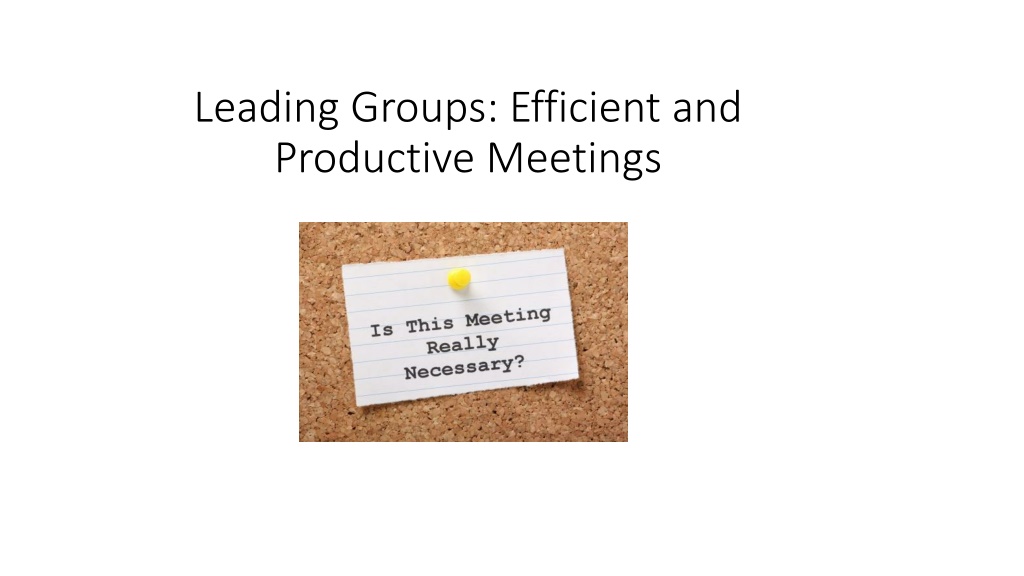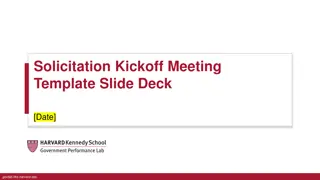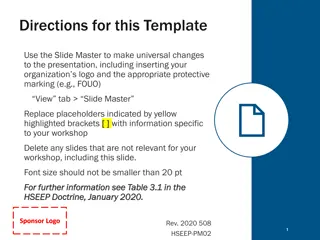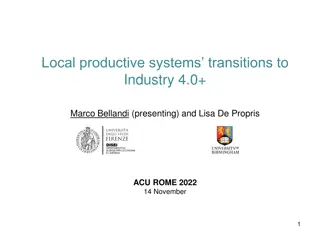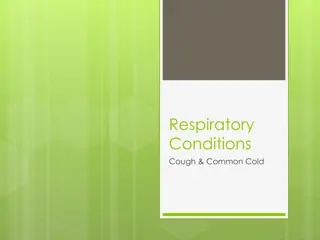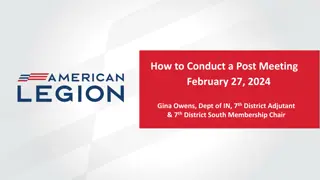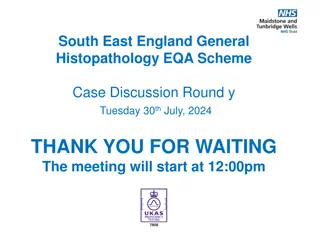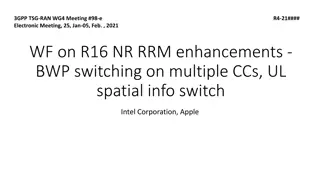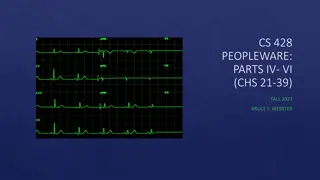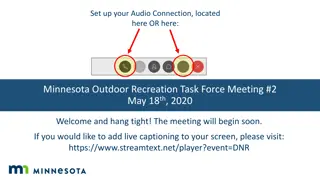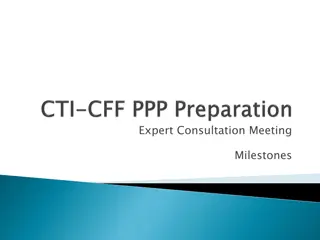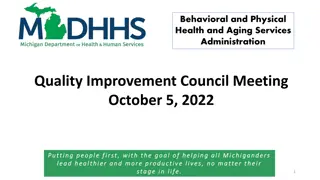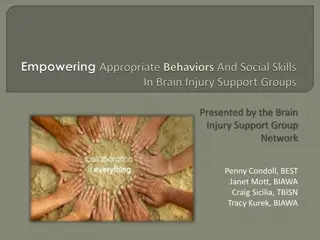Efficient and Productive Meeting Strategies
Efficiency in meetings is crucial for productivity. Key principles include setting clear goals, distributing agendas beforehand, keeping discussions focused, taking notes, and timely follow-up. The Rule of Thirds outlines three segments for effective meetings: start-up, instructional, and decompression. The Urgency Agenda Bell helps prioritize topics based on urgency and importance levels. Implementing these strategies can lead to more efficient and productive meetings.
- Meeting Efficiency
- Productivity Strategies
- Organizational Communication
- Time Management
- Leadership Skills
Download Presentation

Please find below an Image/Link to download the presentation.
The content on the website is provided AS IS for your information and personal use only. It may not be sold, licensed, or shared on other websites without obtaining consent from the author. Download presentation by click this link. If you encounter any issues during the download, it is possible that the publisher has removed the file from their server.
E N D
Presentation Transcript
Leading Groups: Efficient and Productive Meetings
Basic Principles: Structure If the answer to the question on the last slide is NO, then don t hold the meeting. Countless websites, guides, books exist on running efficient meetings. Some common themes that I have found useful: - Distribute an agenda ahead of time - Be sure the goals for the meeting are clear a list of specific, actionable items - Keep the conversation focused on those goals; use a parking lot for off-topic conversations - Take notes yourself (even if someone else is) - Distribute minutes shortly after the meeting; clearly identify any action items, along with due and who is responsible. *FOLLOW UP! - Start on time and end on time
John Tropman Henry J. Meyer Collegiate Professor of Social Work Emeritus, University of Michigan 2017 2012
Rule of Thirds Three parts to each meeting: Start-up period in which less difficult items are covered, latecomers arrive. Instructional items. Heavy work period in which the most difficult items are considered. Decisions, action items. Decompression period in which the meeting begins to wind down. Discussion items.
Urgency Agenda Bell Importance Low High Low 3 4 & 6 Greatest Resources for Toughest Topic High 4 5 E n e r g y Creativity/Brainstorming @each meeting around future topics Modest Decision Item(s) Moderate Decision Item(s) Most Difficult Item(s) Brainstorm Item(s) Announce- ment(s) Small Trivial Item(s) Minutes 1 2 3 4 5 6 7 Time
